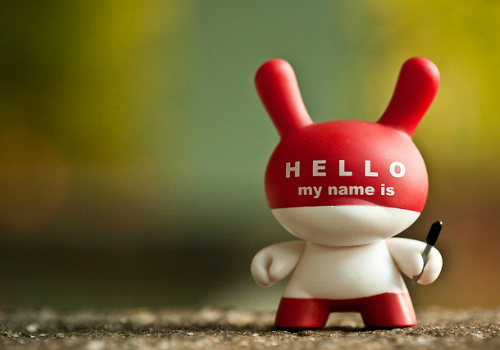Appellation Station: The Complex Art of Naming Your Characters

We’re neck-deep in NaNo Prep season. Like the main event itself, NaNo Prep is always better with an incredible writing community around you. Luckily, the NaNo Tips & Strategies forums have a ready-made community. Today, we asked Tia Kalla, forums moderator, to talk to us about the Appellation Station forum, and the complex art of naming your characters:
So you’re working on developing your characters, but you’re not really sure where to start? (Like answering rhetorical questions?)
Names are often one of the first things I nail down about a new character: partly because I help moderate the Appellation Station forum, partly because “Hey, you” gets confusing after a while, and partly because the mere act of assigning a name can help decide certain things for your character.
Like what, you ask? (Am I rocking these rhetorical questions or what?) Well…
GenderSure, there are traditionally female names and male names. But there are also gender-ambiguous names and names that skew one way or another. Readers and characters alike form impressions based on those names, and it can be fun to defy those impressions by giving a character an unexpected name. (My 2013 NaNo included a girl with a masculine-sounding name—which accidentally gets her a roommate assignment with a boy. Whoops!)
AgeEver heard of someone named Ethel or Mary and expected them to be old? How about expecting a Madison or Alexis to be younger? Certain names were so popular at various points of history that you can date a character by their name alone sometimes.
At least in the US, , which can give you a place to start.
Cultural backgroundOne of my pet peeves is seeing someone ask for a throwaway or cameo name, and get nothing but Jessicas, Sarahs and Emilys.
One of the easiest ways to get variety in a story is to just think outside the box. Why not go for a Yumi, or a Semiha, or a Taye? If you’re just starting with a character, giving them a culturally unique name can be a great jumping off point for development—after all, a Svetlana is not likely to have the same life experiences as a Sally!
GenreThere must be something about fantasy names that we can identify them by their feel alone (and I don’t think it’s just the apostrophes!) Otherwise, why would we have many dedicated to them?
Likewise, sci-fi and alien names have a feel to them, trending toward short and punchy while fantasy tends to skew more lyrical. And of course, if you’re writing historical fiction, your names will represent your niche in history.
Their Destiny!But no, really. A lot of authors like to give their characters names that contain meaning, which may be significant to the story or just to the reader.
For example, Usagi Tsukino from Sailor Moon means “rabbit of the moon”, a reference to the Japanese myth of a rabbit on the moon and the fact that she’s the moon’s princess.
Beorn, a character in The Hobbit, whose name means “bear spirit”, was a bear skinchanger. Other writers may name characters after people they know, or inside jokes—like, I hear there’s a bunch of people that name a character “Mr. Ian Woon”…
So, does this give you some food for thought on what work your character’s name can do for you? Or are you just tired of the rhetorical questions?
…I’ll show myself out now.

Former volunteer Municipal Liasion for NaNoWriMo, current moderator, and participant for probably longer than the recommended exposure, Tia Kalla is a fan of lengthy subordinate clauses and the Oxford comma. She writes all over the genre map, but mostly fantasy, and makes too many cannibal jokes. Someone dared her to put “a thing” in her bio, so she did.
Top photo by Flickr user bump.
Chris Baty's Blog
- Chris Baty's profile
- 63 followers



